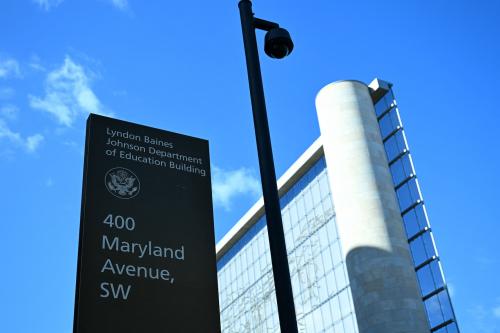The Supreme Court’s recent McCutcheon decision has reinvigorated the discussion on how campaign finance affects American democracy. Seeking to dissect the complex relationship between political parties, partisan polarization, and campaign finance, Tom Mann and Anthony Corrado’s new paper on Party Polarization and Campaign Finance reviews the landscape of hard and soft money in federal elections and asks whether campaign finance reform can abate polarization and strengthen governing capacity in the United States. The paper tackles two popular contentions within the campaign finance debate: First, has campaign finance reform altered the role of political parties as election financiers and therefore undermined deal making and pragmatism? Second, would a change in the composition of small and large individual donors decrease polarization in the parties?
The Role of Political Parties in Campaign Finance
Political parties have witnessed a number of shifts in their campaign finance role, including McCain-Feingold’s ban on party soft money in 2002. This has led many to ask if the breakdown in compromise and governance and the rise of polarization has come about because parties have lost the power to finance elections. To assess that claim, the authors track the amount of money crossing national and state party books as an indicator of party strength. The empirical evidence shows no significant decrease in party strength post 2002 and holds that “both parties have compensated for the loss of soft money with hard money receipts.” In fact, the parties have upped their spending on congressional candidates more than six-fold since 1980. Despite the ban on soft money, the parties remain major players in federal elections.
Large and Small Donors in National Campaigns
Mann and Corrado turn to non-party money and survey the universe of individual donors to evaluate “whether small, large or mega-donors are most likely to fuel or diminish the polarization that increasingly defines the political landscape.” The authors map the size and shape of individual giving and confront the concern that Super PACs, politically active nonprofits, and the super-wealthy are buying out American democracy. They ask: would a healthier mix of small and large donors reduce radicalization and balance out asymmetric polarization between the parties? The evidence suggests that increasing the role of small donors would have little effect on partisan polarization in either direction because small donors tend to be highly polarized. Although Mann and Corrado note that a healthier mix would champion democratic ideals like civic participation and equality of voice.
Taking both points together, Mann and Corrado find that campaign finance reform is insufficient for depolarizing the parties and improving governing capacity. They argue forcefully that polarization emerges from a broader political and partisan problem. Ultimately, they assert that, “some break in the party wars is probably a prerequisite to any serious pushback to the broader deregulation of campaign finance now underway.”
Click to read Mann and Corrado’s full paper, Party Polarization and Campaign Finance.
The Brookings Institution is committed to quality, independence, and impact.
We are supported by a diverse array of funders. In line with our values and policies, each Brookings publication represents the sole views of its author(s).




Commentary
New Paper: Party Polarization and Campaign Finance
July 17, 2014